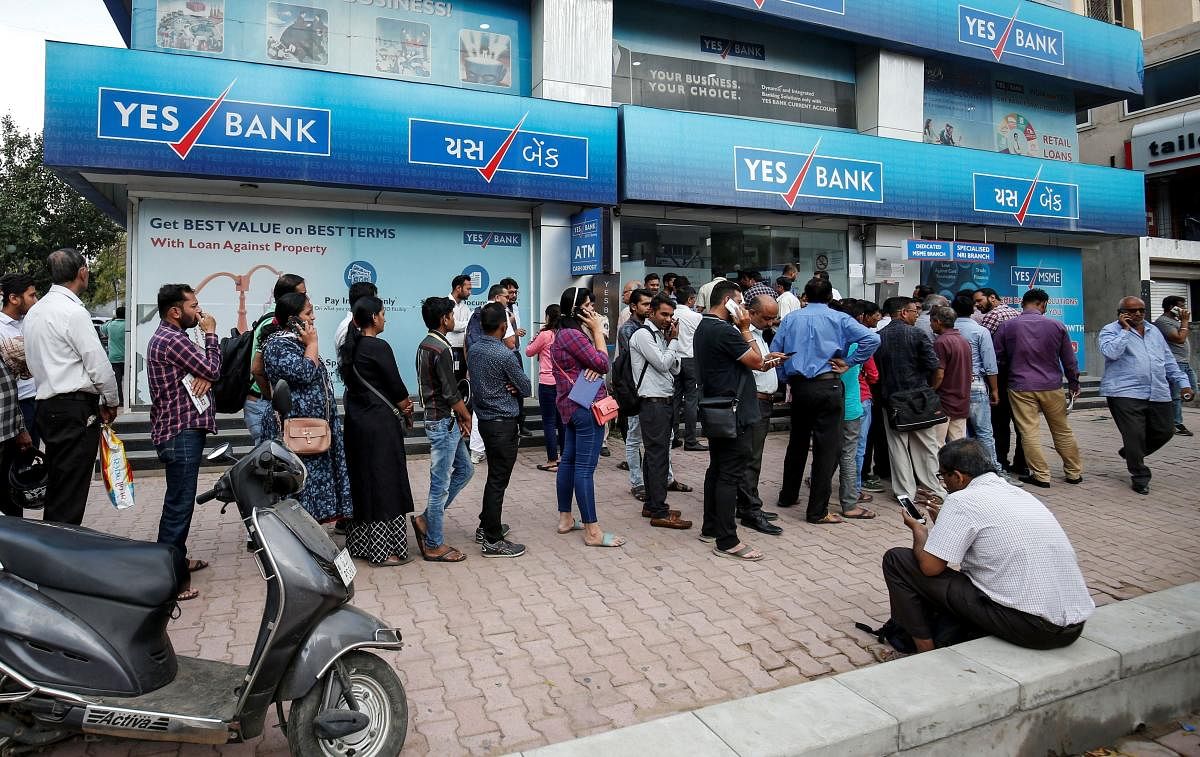
The government is not considering to bring other private-sector lenders under scrutiny in the aftermath of Yes Bank crisis that has left lakhs of customers worried if their hard-earned money is really safe in banks.
"There is no such plan," said an official source when asked if the Yes Bank crisis preceded by Punjab and Maharashtra Co-operative (PMC) bank debacle calls for scrutiny of other lenders also.
The official said that there has been timely action on part of both the government as well as the Reserve Bank of India (RBI).
"The bailout plan has also been announced, so this will be contained," said the official.
However, analysts expect that the new generation private sector lenders alongside the cooperatives could face slow growth in their deposits as the banking business is based on trust and confidence.
S&P Global Ratings said if Yes Bank's resolution process is prolonged, there is a risk the broader banking environment may take a hit.
"The uncertainty may engulf weak financial-sector entities, including non-bank finance companies or private-sector banks. Companies with marginal credit profiles, perceived governance issues, and aggressive risk appetites are particularly vulnerable. These could suffer from extended risk aversion, resulting in rising borrowing costs," S&P Global Ratings said.
Yes Bank being put under administration has further eroded the confidence in the financial sector in India. After IL&FS, DHFL and PMC Bank, this is a bigger setback given its size and profile, said Tarun Bhatia, MD & Head of South Asia in the Business Intelligence and Investigations practice of Kroll.
Brokerage firm Anand Rathi said deposit growth for select banks may slow down.
"The banking system is based on goodwill and trust. Given the recent events (including at PMC and Yes), new age private banks and smaller regional banks may see slower deposit growth, Anand Rathi said in a note on 'India Banks? Likely contagion effect of Yes Bank'.
It said although the regulator and the government have in both cases stepped in to safeguard the interests of depositors, "we expect retail investors to park their deposits in PSBs and select larger private banks".
At least in the short run, deposit growth in new-age private and smaller regional banks could therefore significantly slow down. This may push up their cost of funds, eating into their margins. Loan growth of private banks with higher C/D (cost to deposit) ratios could be slower, it added.
"The event raises serious issues around corporate governance in the bank but will now bring all other mid and small size banks under scanner too. The cost of capital will increase for the banks and there could be an increase in asset side risks with growing concern on the quality of portfolio they hold," said Bhatia of Kroll -- a division of Duff & Phelps -- on Yes Bank development.
During the moratorium period, Yes Bank will not be able to grant or renew any loan or advance, make any investment, incur any liability or agree to disburse any payment.
As per the RBI's draft reconstruction scheme, State Bank of India (SBI) will pick up 49 per cent stake in the crisis-ridden Yes Bank under a government-approved bailout plan by infusing capital of Rs 2,450 crore.
Bank's financial health is not sound as it has failed to raise enough capital under the new leadership of Ravneet Singh Gill, who took charge as managing director and CEO from March 1, 2019.
Troubles at new generation private sector started brewing up ever since the Reserve Bank denied extension to its co-founder Rana Kapoor -- who now is in the custody of the Enforcement Directorate for financial mismanagement and money laundering charges -- to continue as MD and CEO in September 2018 and had asked the lender to find a new successor.